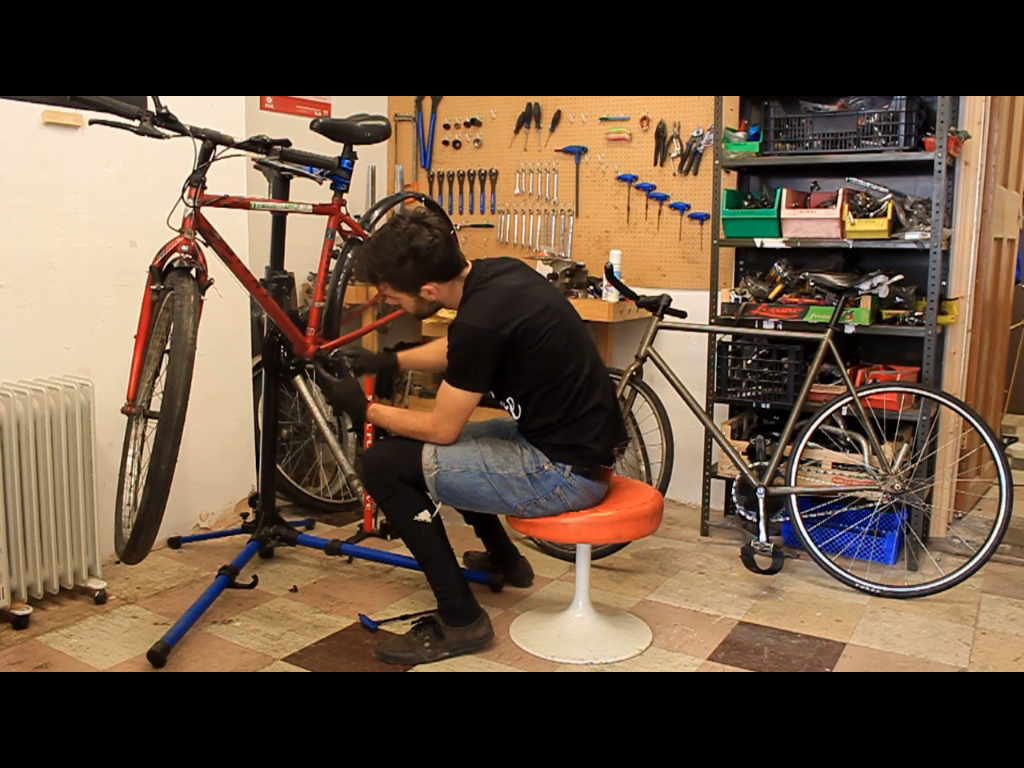Cycling is inexpensive, environmentally friendly, good exercise, often faster than public transport, reduces traffic congestion. What’s not to like? Unfortunately public policy is not always bicycle-oriented, and many people, especially women, are unwilling to get on a bike. Birmingham Bike Foundry, a workers’ cooperative that recycles bikes and offers cycle training, is hoping to convince the public that cycling is the way to go.
“Our primary aim as a bike co-op is to help develop a cycling culture within Birmingham, a city with serious health problems and a toxic addiction to car culture,” says Chris Tomlinson, one of the four founder-members of the cooperative, which rents a Victorian terraced shop on a half-empty high street in Stirchley, South Birmingham.
Having identified some reasons why people don’t cycle, like affordability, gender, lack of confidence and bicycle maintenance, the cooperative is trying to overcome these barriers, selling refurbished bikes as cheaply as possible and training the public and schoolchildren in safe cycling and bike maintenance. For £10 a year, people can join the Tool Club and get weekly access to the Foundry’s workshop to use its expensive, specialist tools to fix and maintain their bikes.
The cooperative is also actively trying to recruit more women to cycling, and the women members run the Femme Pédale group, organizing rides and sharing knowledge and experience of being a female cyclist.
The four members - Chris Tomlinson, Nancy Langfeldt, Finlay Skillen and Lauren Baker - are all directors of this fully mutual cooperative and they all share job roles. “We also pay according to need and not on an hourly rate,” explains Tomlinson. “At the end of every month each of us states what our needs are in terms of pay and we (hopefully) pay workers from the surplus that we have generated.”
Being a cooperative is fundamental to the Birmingham Bike Foundry’s identity, and one of the members key aims is to promote the cooperative model. Committed to all the Cooperative Principles, they attach special importance to the principle of cooperation between cooperatives.
“We are members of Radical Routes, which is a national co-op made of cooperatives, all of which are fully mutual and committed to working towards social change,” says Tomlinson. “We are also committed to a wider social transition to a democratic and equal society. We are working towards a post-capitalist world based on free associations of worker-run workplaces and community groups.”
“Being in a cooperative helps us to protect our assets and keep them in the movement and being used for social aims rather than individual gain,” says Tomlinson. “The members believe cooperation is the natural form to adopt for a democratic workplace and it’s also a good way of explaining to people that the primary aim of your business is not to make money.”
In the future, the Birmingham Bike Foundry hopes to become more financially secure and be able to offer all members full-time employment with decent wages (currently only two workers can be paid for full-time work). While they don’t plan to expand their membership, they do hope to support other groups to set up similar co-ops. And, in the long term, “We want to play a part in the social revolution! We want to support our community to be more independent, healthier and happier,” says Tomlinson.



